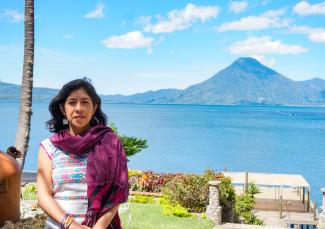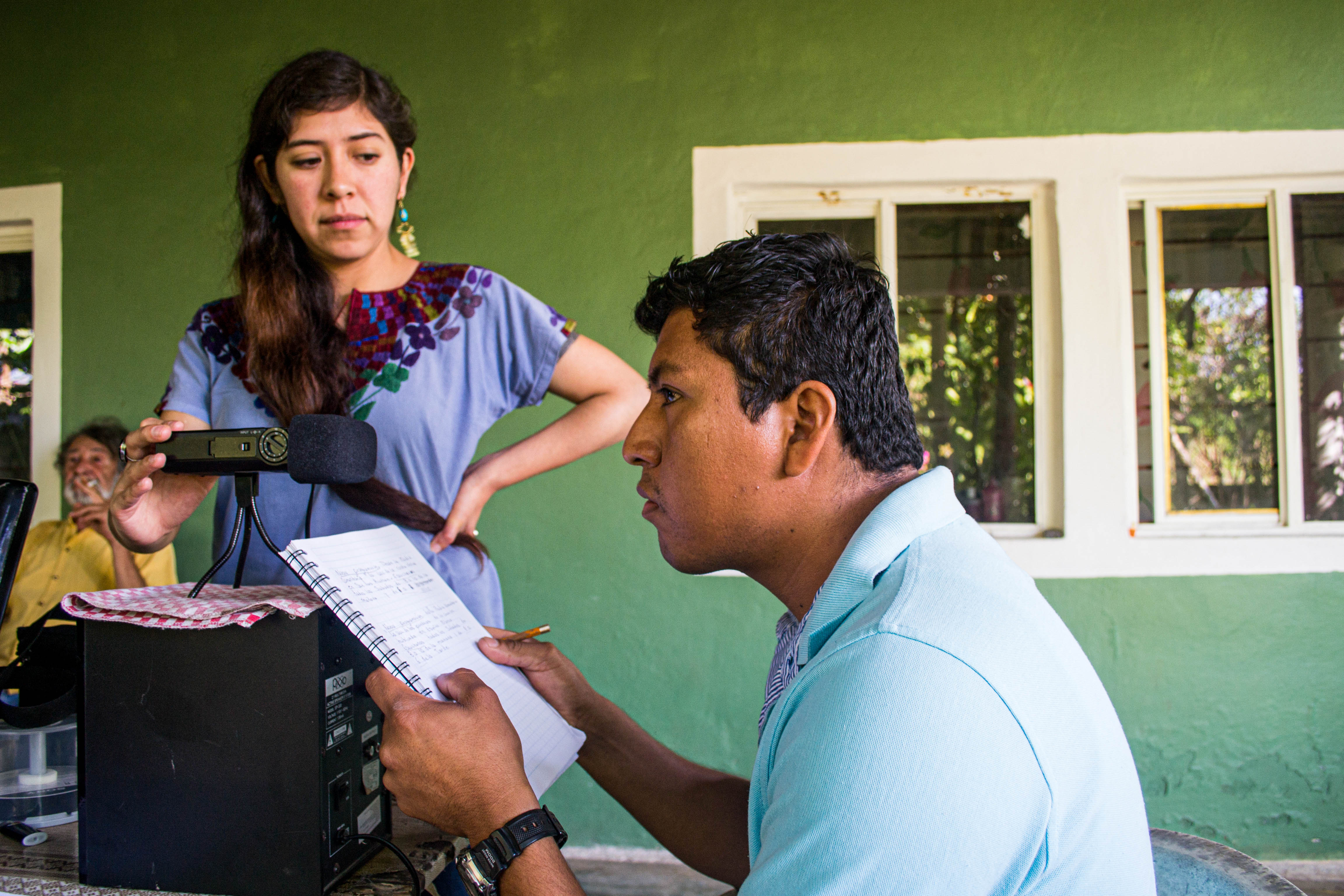
Guadalupe Pastrana (Nahua) was born in the community of Malacachtepec Momoxco, now known as Milpa Alta, breathing the pure air of the oyamel and oak forests in the 10,000 hectares of its territory. Protected by the Nahua Peoples, Malacachtepec Momoxco is one of the only remaining Indigenous communities to survive in the vicinity. It is also considered one of the last lungs of Mexico City, supplying clean water and oxygen to the smog-choked urban area. Guadalupe has been an Indigenous Rights Radio Producer at Cultural Survival since 2021.
As a child, Guadalupe grew up guided by the teachings of her maternal grandmother, a forest defender, and the ideals of her father, an agrarian lawyer from a Nahua community in the state of Guerrero. Guadalupe says, “I keep memories of what formed me as a Nahua or Momoxca woman, such as an oath to defend the territory that men and women of the community made every year on February 5: ‘We will defend the land first with guile, then with the law, and, if that is not enough, with force.’”
Malacachtepec Momoxco has maintained a strong awareness of the importance of conserving and defending their territory, not allowing the entry of shopping malls, convenience stores, or privately run movie theaters. The community has led several important movements for the defense of its forests, one of them in the 1970s, when several real estate projects were planned. More recent struggles have been against the Arco Sur highway project that would cut through their forests, and against the installation of marine barracks.
“Our community has historically participated in the struggle for the rights of Indigenous Peoples and campesinos in Mexico,” Guadalupe says, adding that she has always been passionate about the issue of territorial defense. “Despite centuries of plundering and continuous attempts at dispossession, many Indigenous Peoples have managed to preserve our territory and maintain a close emotional and spiritual relationship with it,” she says.

Since joining Cultural Survival, Guadalupe has found satisfaction in connecting with colleagues at different community radio stations around the world. “[I am] passionate to learn about and work together with others in different parts of the globe, and to contribute to building their capabilities through workshops and exchanges,” she says.
In the face of historical exclusion by the State and its attempts to assimilate and oppress Indigenous Peoples, Guadalupe says they have always built resistance movements. “The creation of our own community media is part of this resistance, so that languages are not forgotten, knowledge is not lost, to inform and denounce when there are threats to our territories, as well as to continue building and sustaining them collectively,” she says. In order to continue advancing in the defense of rights, it is necessary to strengthen communication projects that already exist in Indigenous communities, as well as to undertake new projects and experiment in other areas such as the installation of cellular networks and community internet.
As a producer for Indigenous Rights Radio, Guadalupe works to support Indigenous Peoples in building or consolidating their autonomy and living self-determined lives. She says she would like to see Indigenous Peoples become strong enough to stop the new onslaughts on their territories, especially those occurring due to the so-called green energy transition, which requires minerals that are being extracted from Indigenous lands.
Guadalupe says that one of the most pleasurable experiences she has had as a producer has been to record the poetry of Indigenous writers Humberto Ak’abal, Irma Pineda, and Huber Matiúwàa, among others. This has been a collective work as part of her collaboration in the series “Voces y Cantos de la Tierra Viva” of Radio Educación, a Mexican public radio station for which she is also a producer, scriptwriter, and announcer in a series dedicated to the struggles, demands, music, and literature of Indigenous Peoples in Mexico.
Guadalupe hopes to publish a book of poetry and eventually realize her dream of creating a professional recording studio where she can produce Indigenous musicians and bands. As she says, “I must contribute to the safeguarding and dissemination of musical creations born in our territories.”
